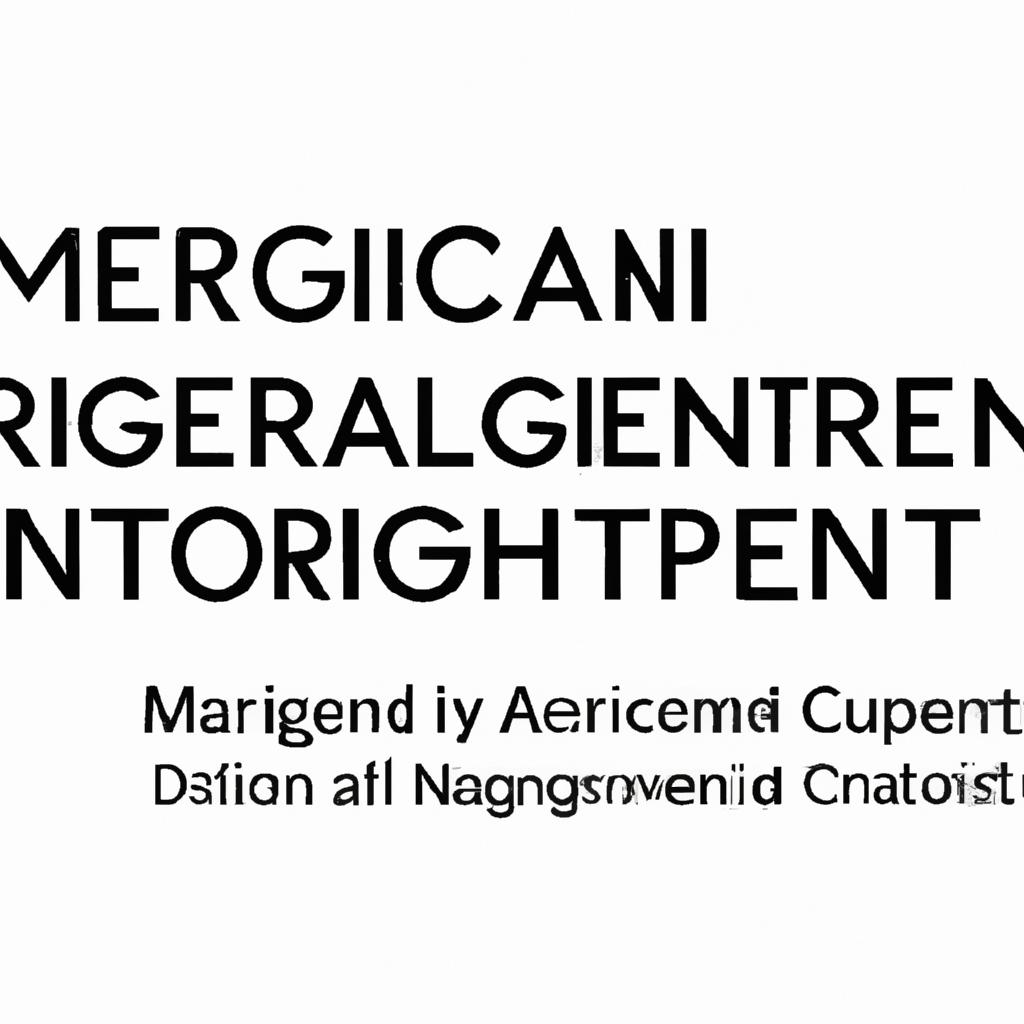In the intricate realm of estate planning and trust administration, the question of whether a minor can be designated as a beneficiary is a subject of great complexity and nuance. As experienced legal practitioners at Morgan Legal Group in the bustling metropolis of New York City, we specialize in navigating the intricate legal landscape of Wills, trusts, probate, and elder law. In this article, we will examine the legal considerations and potential pitfalls involved in designating a minor as a beneficiary, shedding light on the intricacies of this important decision. Join us as we delve into the world of minors as beneficiaries in estate planning, offering guidance and insight into this crucial aspect of asset allocation and wealth transfer.
Considerations when Naming a Minor as a Beneficiary in Your Will
When considering naming a minor as a beneficiary in your will, it is important to take several factors into account to ensure their best interests are protected. While it is possible to make a minor a beneficiary, there are specific considerations that must be addressed to avoid potential complications.
One crucial consideration is designating a guardian or trustee to manage the inheritance on behalf of the minor. This individual will be responsible for making financial decisions on behalf of the minor until they reach legal age. Additionally, it is important to specify how the inheritance should be distributed, whether in a lump sum or through staggered distributions, to ensure the minor’s financial security.

Legal Implications of Making a Minor a Beneficiary: What You Need to Know
When considering making a minor a beneficiary in your estate plan, there are several important legal implications to be aware of:
- Guardianship: If a minor is designated as a beneficiary, a guardian will need to be appointed to manage the inheritance until the child reaches the age of majority.
- Court Approval: In some cases, court approval may be required to ensure that the minor’s best interests are protected and that the inheritance is managed appropriately.
- Trusts: One way to avoid some of the legal complexities of making a minor a beneficiary is to set up a trust, which can provide more control over how and when the inheritance is distributed.
Before making a minor a beneficiary in your estate plan, it is important to consult with a qualified attorney who specializes in estate planning. They can help you navigate the legal implications and ensure that your wishes are carried out in a way that is legally sound and in the best interests of the minor.
| Beneficiary | Legal Implications |
|---|---|
| Minor | Guardianship and court approval may be required. |

Protecting the Interests of Minors in Estate Planning: Best Practices
When it comes to estate planning, one common question that arises is whether a minor can be named as a beneficiary in a will or trust. While it is technically possible to make a minor a beneficiary, it is essential to take certain precautions to protect their interests. One of the best practices for ensuring the well-being of a minor beneficiary is to establish a trust that will hold their inheritance until they reach the age of majority.
By setting up a trust for a minor beneficiary, you can designate a trustee who will manage the assets on their behalf. This trustee will have the responsibility to ensure that the minor’s inheritance is used for their benefit and in accordance with your wishes. Additionally, including specific instructions in the trust document regarding the distribution of funds can help safeguard the minor’s interests and prevent any misuse of their inheritance. Overall, taking the necessary steps to protect the interests of minors in estate planning is essential to ensure that their future is secure.

Navigating the Complexities of Designating Minors as Beneficiaries: Expert Guidance from Morgan Legal Group
Designating minors as beneficiaries in your estate planning can be a complex and sensitive matter that requires expert guidance. At Morgan Legal Group, our team of experienced attorneys can help you navigate the intricacies of this process to ensure that your wishes are carried out efficiently and effectively.
When making a minor a beneficiary, it is important to consider the following key factors:
- Legal Capacity: Minors do not have the legal capacity to directly receive assets, so a trust or custodial account may need to be established to manage the inheritance on their behalf.
- Guardianship: Designating a guardian for the minor beneficiary is crucial to ensure that their financial and personal needs are properly taken care of in the event of your passing.
- Age of Majority: Be mindful of the age at which the minor beneficiary will gain access to the inheritance, as it may be beneficial to set conditions or restrictions to protect their best interests.
Q&A
Q: Can you make a minor a beneficiary in your will or life insurance policy?
A: Yes, you can designate a minor as a beneficiary in your will or life insurance policy.
Q: Are there any restrictions or limitations when making a minor a beneficiary?
A: Yes, there are certain restrictions and limitations that apply when designating a minor as a beneficiary, such as the need for a guardian or trustee to manage the assets until the minor comes of age.
Q: What is the role of a guardian or trustee when a minor is named as a beneficiary?
A: A guardian or trustee is responsible for managing the assets on behalf of the minor until they reach the age of majority.
Q: What happens if a guardian or trustee is not designated for a minor beneficiary?
A: If a guardian or trustee is not designated, the court will appoint one to manage the assets on behalf of the minor.
Q: Can a minor inherit assets directly without a guardian or trustee?
A: In some cases, a minor can inherit assets directly, but it is generally not recommended due to the potential risks and complications involved.
Q: What are the benefits of making a minor a beneficiary?
A: The benefits of making a minor a beneficiary include providing for their financial future and ensuring that they are taken care of in the event of your passing.
Q: How can I ensure that my minor beneficiary is properly cared for after I pass away?
A: To ensure that your minor beneficiary is properly cared for, it is important to work with a legal professional to establish a trust or other legal arrangements that will protect their inheritance.
The Conclusion
In conclusion, the decision to make a minor a beneficiary is a complex and important one that should not be taken lightly. While it is possible to designate a minor as a beneficiary, there are several factors to consider, including legal constraints and the potential impact on the minor’s financial future. As with any financial decision, it is crucial to seek advice from a qualified professional before proceeding. Ultimately, careful consideration and thoughtful planning are key to ensuring that the minor’s interests are protected and their future secured. Thank you for reading.
 Can You Make a Minor a Beneficiary? A Comprehensive Guide
Can You Make a Minor a Beneficiary? A Comprehensive Guide
As a parent or guardian, it is natural to want to secure your child’s financial future. One way to do this is by making them a beneficiary in your will or estate plan. However, the question arises – can a minor be a beneficiary? The answer is yes. But it’s not as straightforward as it may seem.
In this comprehensive guide, we will delve into the details of making a minor a beneficiary, including the benefits and practical tips, case studies, and first-hand experiences. We will also cover the legal implications and limitations, as well as the steps involved in setting up a minor as a beneficiary. So, let’s get started.
Legal Implications and Limitations
Before diving into the process of making a minor a beneficiary, it’s important to understand the legal implications and limitations. As a minor is not legally allowed to inherit or own assets, certain restrictions and precautions need to be taken.
Firstly, a minor cannot legally manage their own assets until they reach the age of majority, which is 18 or 21, depending on the state. This means that if you make your child a beneficiary, the assets will be managed by a guardian or a trustee until they reach the age of majority.
Secondly, there may be limitations on the amount of assets a minor can inherit. Many states have laws that restrict the amount of assets a minor receives to a certain percentage of their parents’ estate. This is to prevent beneficiaries from receiving a significant amount of assets at a young age, which can be overwhelming and may lead to financial mismanagement.
Steps to Make a Minor a Beneficiary
Now that we have covered the legal implications and limitations, let’s look at the steps involved in making a minor a beneficiary.
1. Consult with an attorney: Before making any decisions, it’s important to consult with an experienced estate planning attorney. They can help you understand the applicable laws and guide you in creating a solid estate plan that includes a minor beneficiary.
2. Choose a guardian: If your child is a minor, you will need to appoint a guardian who will manage the assets on behalf of the child. This can be a family member, a close friend, or a professional trustee. Make sure to discuss this with the chosen guardian beforehand to ensure they are willing and capable of taking on this responsibility.
3. Set up a trust: Setting up a trust is one of the most common ways to make a minor a beneficiary. A trust is a legal entity that holds assets on behalf of a beneficiary. By setting up a trust, you can specify when and how the assets will be distributed to the minor beneficiary. The trustee will be responsible for managing the assets according to the terms of the trust until the child reaches the age of majority.
4. Name a custodian under the Uniform Gifts to Minors Act (UGMA) or Uniform Transfers to Minors Act (UTMA): Another option is to name a custodian under the UGMA or UTMA. This allows the minor to receive the assets directly at the age of majority, which is 18 or 21, depending on the state. However, this does not provide as much control as a trust, as the minor will have full control over the assets once they reach the age of majority.
Benefits and Practical Tips
Now that you have a better understanding of the legal implications and steps involved, let’s look at the benefits and practical tips of making a minor a beneficiary.
1. Ensures financial security: By making your child a beneficiary, you can ensure their financial security in the event of your death. This can be especially beneficial if you have young children who are not yet financially independent.
2. Avoids probate: Assets passed on through a trust or through the UGMA or UTMA will avoid probate, which can be a lengthy and costly process. This ensures that the assets are distributed according to your wishes without any delay or court intervention.
3. Allows for control over assets: By setting up a trust, you can specify when and how the assets will be distributed to the minor. This can be beneficial if you have concerns about your child’s financial responsibility. You can also use the trust to include specific instructions, such as using the assets for education or healthcare.
4. Review and update regularly: As with any estate planning, it’s crucial to review and update your plan regularly. This is especially important when a minor is a beneficiary. As your child grows and their needs change, you may need to update the trust or name a new guardian.
Case Studies and First-hand Experiences
To further understand the process of making a minor a beneficiary, let’s look at a few case studies and first-hand experiences.
Case Study 1: Emily is a single mother with two teenage children. She has a substantial estate and wants to make sure her children are taken care of in the event of her death. She consults an attorney and sets up a trust, with her sister as the trustee. She also includes instructions for the assets to be used for her children’s education. Emily regularly reviews and updates the trust as her children’s needs change.
Case Study 2: John and Sarah have a young daughter, Lily. They want to make her a beneficiary in their estate plan but are concerned about her financial responsibility. They decide to set up a trust and name a close family friend as the trustee. The trust includes specific instructions for the assets to be used for Lily’s health and well-being until she reaches the age of 21, after which she will receive full control of the assets.
First-hand experience: “As a parent, it was important for me to ensure my children’s financial stability. By setting up a trust and naming a guardian for my minor children, I have peace of mind knowing that my assets will be distributed according to my wishes and someone I trust will be managing it on their behalf.” – Diane, mother of three.
In conclusion, making a minor a beneficiary in your estate plan comes with its own set of legal implications, limitations, and steps. However, it can be a valuable way to secure your child’s financial future and ensure your assets are distributed according to your wishes. It’s crucial to consult with a professional estate planning attorney and to review and update your plan regularly. By following these steps and tips, you can ensure that your children are taken care of in the event of your death.

